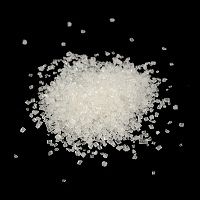Aspartame: Blinded Study Demonstrates Safety. Again.
Researchers investigating symptoms in people with self-reported aspartame sensitivity could find no substantive psychological or metabolic response to aspartame.

The artificial sweetener aspartame has elicited intense controversy and negative patient anecdotes since its approval in the 1980s. Cancer, blindness, and seizures, oh my! Frightfully misleading websites scare consumers about a litany of symptoms, many of which appear to be psychogenic. Many people believe that aspartame is a dangerous substance, and a subset of those people believe its use is part of a conspiracy to harm individuals and protect the huge industry that uses this sweetener. In Europe, in response to consumer apprehension, the European Food Safety Authority (EFSA) conducted a literature review of aspartame and created a database of the most commonly reported symptoms. However, few studies have studied aspartame’s systemic effects.
The March issue of PLOS ONE contains an article investigating self-reported aspartame sensitivity. The authors conducted a double-blind, randomized, cross-over study with 96 age- and gender-matched active and control arms. Forty-eight participants reported sensitivity to aspartame, and 48 reported no sensitivity. The researchers challenged participants with cereal bars containing 100 mg aspartame (equivalent to the amount consumed in a can of diet soda and less than the Acceptable Daily Intake maximum (ADI) recommended by FDA of 40 mg/kg body weight/day). Patients with food allergies or who had taken any medications in the 3 months prior to the study’s start date were excluded.
Aspartame-sensitive individuals were more likely to report symptoms after consuming aspartame or placebo (a cereal bar that looked and tasted like the aspartame-containing bar). Both aspartame and the control affected GLP-1, GIP, tyrosine, and phenylalanine levels equally. The results of in-depth psychological tests, biochemistry, and metabolic testing showed no substantive psychological or metabolic response to aspartame.
This study is another in a long series of studies indicating aspartame is a safe non-nutritive sweetener. Providers can confidently tell patients that aspartame lacks any acute harmful effects. FDA officials report that aspartame has been thoroughly tested and studied and is safe. Reassurance from a trusted source, such as endocrinologists, is key comfort for patients experiencing aspartame-induced anxiety.